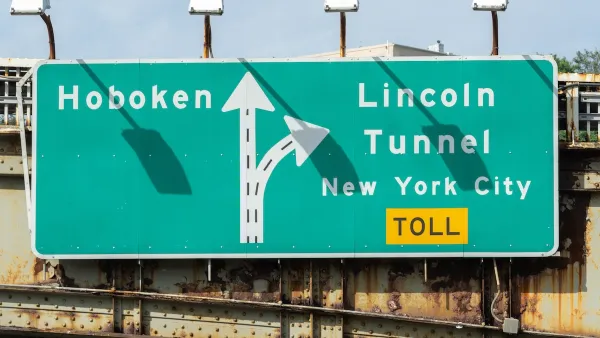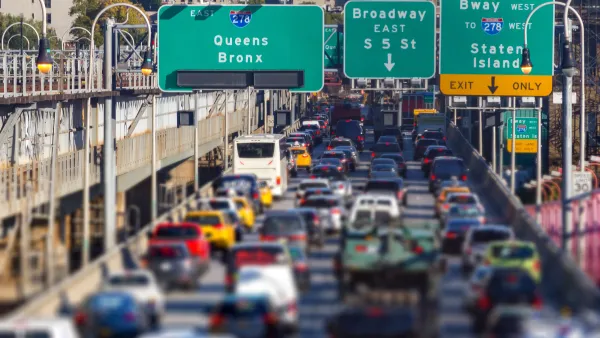Eric Jaffe reports on research that may give pause to light rail advocates who argue the mode can reduce congestion: ridership gains along new lines may come at the expense of buses, rather than cars.
"One of the main justifications for building a light rail line is the hope that it will reduce traffic congestion in a corridor, presumably by drawing commuters out of their cars and onto the train," writes Jaffe. "When we last looked at this assumption, about a year ago, we found cautious support for the decongestive value of light rail corridors in Denver. While traffic continued to rise in these corridors, it rose even more in nearby areas without the rail."
"A similar new study of British light rail systems comes away far less hopeful. In an upcoming issue of the Journal of Transport Geography, planners Shin Lee and Martyn Senior of Cardiff University found that the evidence for light rail reducing car use is unclear. Lee and Senior discovered that car ownership and car commute share often continue to rise in these corridors, and that ridership growth is often the result of travelers shifting over from buses — not cars."
After studying the travel habits of those living within four UK light rail corridors completed from 1991 to 2001, compared to four control areas, "the researchers had a hard time concluding that the light rail systems, taken together, produced much of a shift away from car commuting."
"In the end," adds Jaffe, "the researchers caution against expecting major long-term reductions in road congestion after the creation of a light rail system."
FULL STORY: Does Light Rail Really Encourage People to Stop Driving?

Analysis: Cybertruck Fatality Rate Far Exceeds That of Ford Pinto
The Tesla Cybertruck was recalled seven times last year.

National Parks Layoffs Will Cause Communities to Lose Billions
Thousands of essential park workers were laid off this week, just before the busy spring break season.

Retro-silient?: America’s First “Eco-burb,” The Woodlands Turns 50
A master-planned community north of Houston offers lessons on green infrastructure and resilient design, but falls short of its founder’s lofty affordability and walkability goals.

Test News Post 1
This is a summary

Analysis: Cybertruck Fatality Rate Far Exceeds That of Ford Pinto
The Tesla Cybertruck was recalled seven times last year.

Test News Headline 46
Test for the image on the front page.
Urban Design for Planners 1: Software Tools
This six-course series explores essential urban design concepts using open source software and equips planners with the tools they need to participate fully in the urban design process.
Planning for Universal Design
Learn the tools for implementing Universal Design in planning regulations.
EMC Planning Group, Inc.
Planetizen
Planetizen
Mpact (formerly Rail~Volution)
Great Falls Development Authority, Inc.
HUDs Office of Policy Development and Research
NYU Wagner Graduate School of Public Service




























